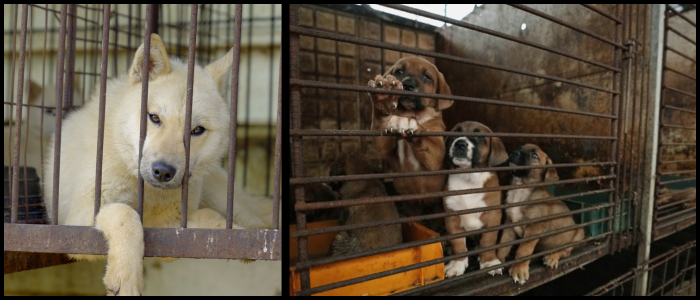Farmers such as Joo, the 60-year-old pastor, who also heads the Korean Association of Edible Dogs, say they have tried to sell the animals since last year, but they have no buyers. "It's very difficult to keep my head above water because of all the debt," he says. "It's a hopeless situation."
Left Behind: The Unwanted Dogs
Government officials say they will seize the dogs if they are given up, and place them in government-run shelters. But rehoming him is a challenge. The dogs, primarily big breeds that were bred for meat, are not sought after by pet adopters in cramped urban South Korea, where small dogs are fashionable.
The public stigma exacerbates the issue, as many people are worried about disease or trauma with dogs kept on meat farms. To add to this, some breeds like the tosa-inu are deemed 'dangerous' and require specific permits to own. With shelters already full, animal campaigners fear that many of the dogs they rescue could end up being put down despite having been "saved" from slaughter.
Cho Hee-Kyung, the director of the Korean Animal Welfare Association, said that there are dogs that cannot be adopted out and will be put down instead. The government has since said euthanasia is "certainly not part of the plan," and has promised to invest 6 billion Korean won ($4.3 million) annually in shelter support, providing 600,000 won ($450) per dog to farmers who close early.
An unstable future and uncertain livelihoods
The harshest economic realities are facing younger farmers like Chan-woo, 33, who has 600 dogs and 18 months to shut down his farm. "All my assets are tied up in the farm," he says. "However even those groups that lobbied for the ban acknowledge that euthanasia is the only remaining option," he added.
Of the 1,537 dog farms in the country, 623 have already shut down. But many farmers feel left behind. "We were told to abandon our work, but no one is taking the dogs," says Mr Joo.
Animal organizations, like Hwak, whose volunteers have found new homes for 2,800 dogs since 2015, say they cannot do that alone. Several farmers have resorted to international adoption, shipping dogs overseas to countries such as Canada and the US where there are more shelters — and homes.
But the emotional and financial toll is mounting. "All we can do now is hope for an extension of the grace period," Chan-woo says. Others, like Mr Joo, worry that by 2027, some farmers will not make it through the cost of change. "So many lives have been utterly destroyed," he said solemnly.
World

Dog Meat Ban in South Korea Sparks Crisis for Farmers

A nationwide dog meat ban across South Korea, which was passed in 2024, has sent a ripple of uncertainty through both farmers and the animals they once bred for food. The legislation, which provides breeders until February 2027 to close their farms, was lauded as a victory by animal rights activists. But halfway through the handover, thousands of farmers say they are left without support — and nearly 500,000 dogs are still in limbo.















